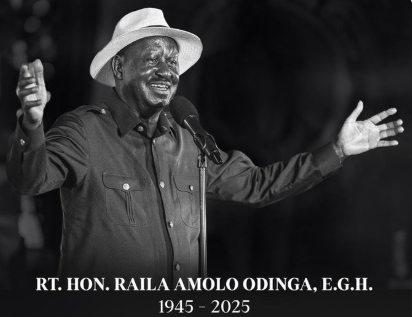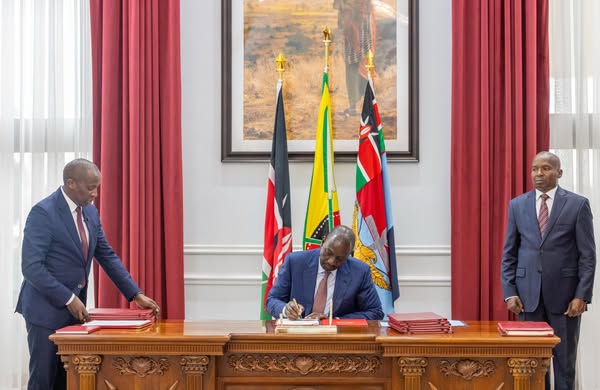
In a rare and somber move, the Senate will convene a special sitting tomorrow, Thursday, October 16, to pay tribute and eulogise the late former Prime Minister Raila Odinga, according to a Gazette notice published today.
The meeting, set for 2:30 p.m. in the Senate Chamber at Parliament, is being held under Standing Order 33 (5) and was requested by the Senate Majority Leader and seconded by multiple senators. The session’s sole agenda: a motion to formally honour Raila Odinga’s legacy. Once the eulogy motion is debated and passed, the Senate will adjourn until Tuesday, October 28, at 2:30 p.m. — marking a brief pause in the legislative calendar.
Symbolic Timing in a Country in Mourning.
The special sitting comes at a critical moment of national grief and political significance. President William Ruto has declared seven days of national mourning following Odinga’s death in India, ordering flags to fly at half-mast and public institutions to observe solemnity.
Parliament’s operations have already been disrupted. Earlier today, National Assembly Speaker Moses Wetang’ula invoked Standing Order Number One to adjourn the House’s morning sitting, promising an important afternoon address. By convening such a special Senate session solely to eulogise Odinga, lawmakers signal the depth of his national influence — transcending partisan lines even in death.
What the Senate Tribute Represents.
A national moment of recognition: The Senate’s tribute elevates Odinga’s life from political figure to a national monument, placing his story in Kenya’s institutional memory.Platform for rival narratives: Expect declarations from senators across the spectrum, some hailing Raila’s struggle for democracy, others probing unfulfilled promises or political fault lines.
Precursor to national rituals: This session helps set the tone for state funeral proceedings, public lectures, and other ceremonies honoring Odinga’s legacy.Snapshot of political alignments: How different caucuses approach the tribute—tone, emphasis, omissions—will reveal early post-Raila alignments and tensions.
Watch Tomorrow for These Key Developments.
1. Senate speeches and references: Which facets of Odinga’s life — opposition struggle, coalition builder, regional leader — receive center stage?
2. Attendance and show of force: Which senators, allies, or rivals show up to pay respects—or stay away silently?
3. Public reaction outside Parliament: Whether crowds assemble outside, and how security manages the spillover.
4. Media framing and messaging: How the tribute is shown across channels — reconciliation, alliance cues, or revived contestation?





